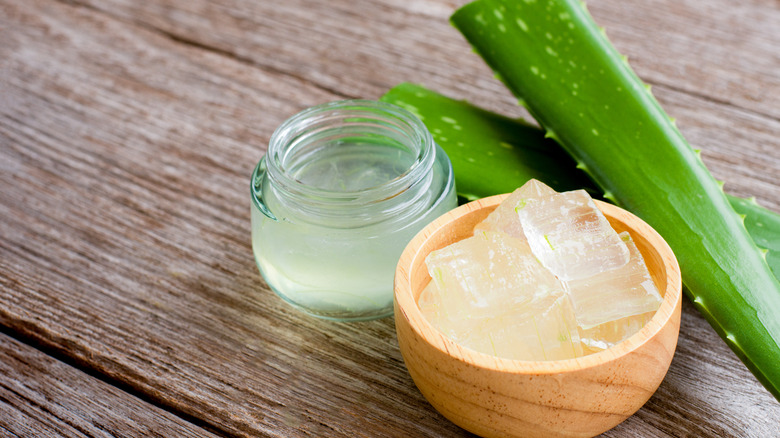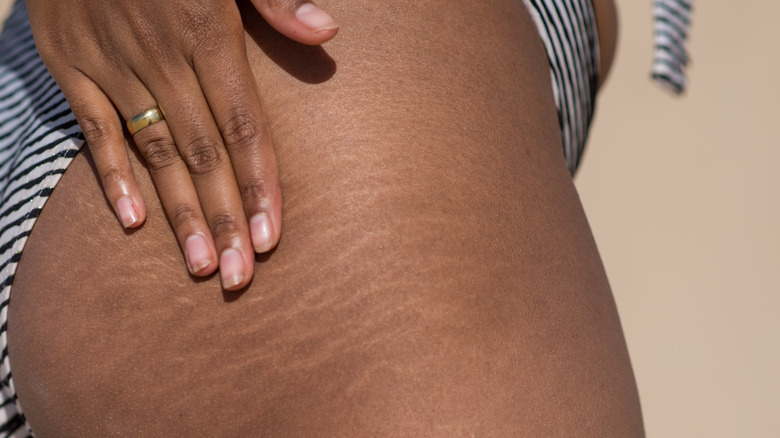Does Aloe Vera Help With Stretch Marks?
Whether you've had a baby, changed your body weight, or gained muscle, chances are good that you have a few or more new stretch marks on your body. Stretch marks are caused when a person's skin extends and quickly reduces in size, explains the American Academy of Dermatology Association. When this happens, the elastin and collagen cells in the skin break. And as the skin heals, narrow bands of scar tissue are left behind. Though these marks may be livid in color at first, they often fade over time.
For some, stretch marks do not fade fast enough, or when they do fade, they are still too visible. This has led to a wide range of stretch mark-erasing products, some of which contain aloe vera. In fact, aloe vera has long been used to treat a variety of ailments from skin conditions and baldness to wound care, according to the National Center for Complementary and Integrative Health (NCCIH). Modern researchers have even begun researching the internal benefits of aloe vera. Although more research is needed, there is some hope that aloe vera can have a positive effect on people with diabetes and digestive issues.
Unfortunately, NCCIH experts don't mention anything about stretch marks. This leaves the question of whether or not aloe vera will actually help reduce the visibility of these common scars.
There is little to no research
The closest the NCCIH gets to referencing stretch marks on their page of aloe vera is a brief mention that preliminary studies have found aloe to benefit certain skin conditions. These include the healing of certain burns, herpes simplex, psoriasis, lichen planus, and in conjunction with other compounds, certain forms of acne.
Aloe's presumed ability to help heal skin might make it effective against stretch marks (per Healthline). However, there is no direct research on aloe vera's use in this capacity so its effectiveness is more of an inference. The lack of research is underscored by the American Academy of Dermatology Association. They state that no single cream or topical product helps in all stretch mark cases and that some products may be entirely ineffective. Keep in mind, in the case of products that do work, it will take weeks of regular application before any improvement may be seen.
In fact, only two topical products seem to work and both require a prescription. Nonetheless, hyaluronic acid and tretinoin must both be applied early on in the life of a stretch mark. And when they are, they both seem to reduce the appearance of stretch marks. However, it's best to see a dermatologist to determine the best stretch mark removal method for each person's skin, particularly if someone has tried many topical products that don't seem to work.


